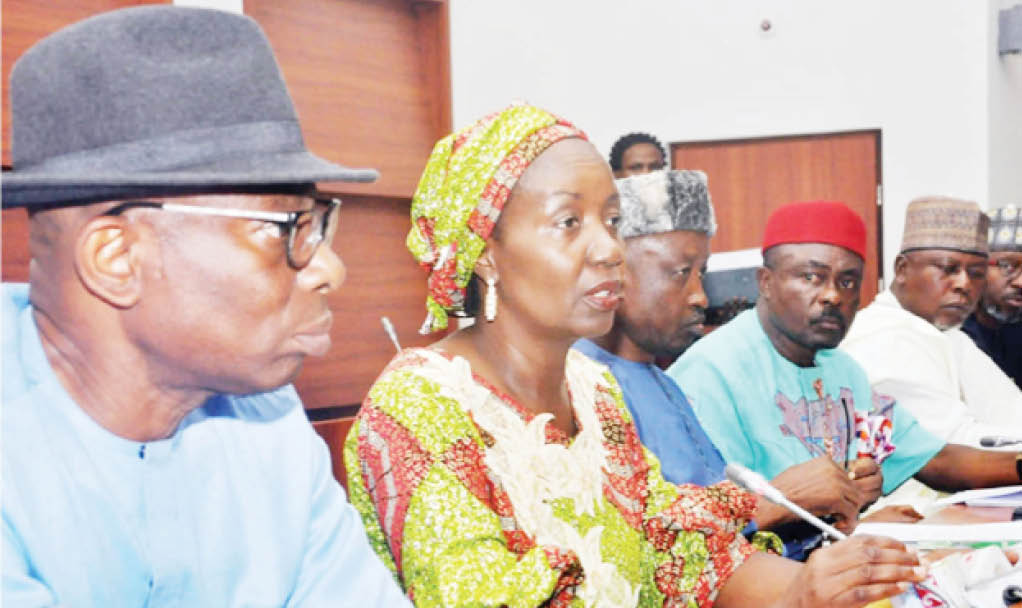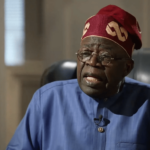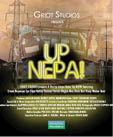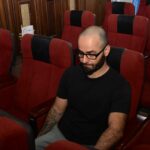It appears Nigeria may yet lose more land to Cameroon unless urgent action is taken by the federal government to look at the border issue between the two countries which took them to the International Court of Justice (ICJ) in The Hague, Netherlands.
This followed recent submissions by the National Boundary Commission (NBC), the Office of the Surveyor General of the Federation (OSGOF) and communities on the verge of being ceded to Cameroon made before the ad hoc committee set up by the House of Representatives on “Nigeria-Cameroon Border Dispute” after the adoption of a motion titled: “Demarcation and Ceding of Danare and Biajua Communities in Boki Local Government Area of Cross Rivers State of Nigeria through Pillar 113A to the Republic of Cameroon”, moved by eight members on July 5.
The committee was mandated to investigate and assess the case of potential land encroachment by the Cameroonian government and consult with legal experts, land surveyors and other relevant professionals to ensure a thorough understanding of the technical aspect involved in resolving the encroachment.
In the motion, the lawmakers reminded that the ICJ on October 10, 2002, ruled that the proprietorship of the Bakassi Peninsula belonged to Cameroon based on an agreement between the governments of Nigeria and Cameroon during the civil war.
- Kano loses 2 ex-commissioners in 3 days
- Amid shrinking reserves: Concerns mount over Tinubu’s directives on grains
They noted that in July, 2012, the Supreme Court ruled that Cross River State had no right of ownership of over 76 oil wells due to the loss of its littoral status when portions of the peninsula were ceded to Cameroon by the Federal Government of Nigeria.
They further stated that: “The ICJ ruling decides the retracing of the Cameroon-Nigeria International Boundary line from the Lake Chad Region (Yola) to the Atlantic Ocean (Bakassi). Subsequently, the United Nations (UN) set up two committees to implement the judgment which led to the establishment of the Cameroon-Nigeria Mixed Commission (CNMC) made up of representatives from Nigeria, Cameroon and officials of the UN.
“The fieldwork which involved the location of the boundary points and placement of boundary pillars by the judgment was undertaken by a Joint Technical Team (JTT), a sub-body of CNMC.”
The lawmakers, therefore, argued that the field exercise or demarcation conducted by JTT must be adopted in any sector considered valid and conclusive by CNMC.
They quoted the Anglo-German agreement of the Cameroon-Nigeria boundary of April 12, 1913, which stated that: “A total of 114 boundary pillars from the Lake Chad Region (Yola, Adamawa State) to Agbokim in Etung Local Government of Area of Cross River State, planted by the Anglo-German had serial numbers written on the pillars. Six of the boundary pillars fall within the Danare community in Boki Local Government Area of Cross Rivers State. The international boundary includes pillars 109, 110, 111, 112, 113 and 113A.”
They said that the Anglo-German agreement clearly stated that the contextual pillar 113A was 9.6km from pillar 113 into the forest leading to pillar 114 that fell in Agbokim in Etung LGA.
They added that, “The JTT has not located pillar 113A, and not tracing pillar 113A, they are planning to adopt a straight line method which would lead to losing Danare and Biajua communities and about 7,000 to 10,000 hectares in the Boki area of Cross Rivers State to the Republic of Cameroon.
“The ICJ judgment adopted the Anglo-German boundary of 1913 as the boundary between the two countries. The job of the CNMC through the JTT, therefore, was to locate this boundary and reinforce it for certainty. Under the principles of federalism: natural justice and equity, the federal government has the responsibility to protect the territorial integrity of all federating units, and not unilaterally cede, sell, mortgage or allocate any part of a federating unit to another country without the consent of the house.”
The lawmakers lamented that lack of concerted effort by the JTT to trace a critical pillar point that would determine the correct boundary line had generated controversy.
They noted that, “It is a worrisome situation even when the team understands that they are lacking in their assignment because a critical pillar is yet to be retraced. Instead of the team going back and doing the needful, they decided to propose a straight line projection to close the gap between pillars 113 to 114.
“If a country like Nigeria keeps losing her people, lands and natural and mineral resources to her neighbouring countries, one day we may not have a place called Nigeria.”
The lawmakers maintained that the missing pillar 113A might have been deliberately removed by the Cameroonian government in their plot to take over the land and the people of Danare and Biajua communities.
They, therefore, warned that if urgent actions were not taken by the federal government, the country would lose the people of Danare and Biajua in Boki LGA and some parts of Obanliku LGA of Cross River State and the ancestral heritage of the land that they had protected all their lives to the Republic of Cameroon against their wishes and desires.
The lawmakers also called on the Cameroon-Nigeria Mixed Commission to report the Anglo-German agreement of 1913 as adopted by the ICJ by tracing and maintaining the original location of pillar 113A in the forest.
The committee as part of its assignment invited the Director General (DG) of the National Boundary Commission (NBC) and the Surveyor General of the Federation to answer why pillar 113A had not been found.
It also invited the Nigerian Army, navy, immigration, the communities and other stakeholders over the matter.
In his presentation to the committee, the DG of NBC, Adamu Adaji, gave a rundown of how the Cameroon- Nigeria borders were marked out by the colonialists which formed the basis of the claims by Cameroon.
He explained that the ICJ ruling was based on those borders which were agreed to by Nigeria on the Bakassi Peninsula.
He noted that they had involved all stakeholders in the communities on either side and that the two governments were fully represented on the matter which he said would be a hard choice for Nigeria as it had no choice but to respect the decisions taken about the borderlines in dispute.
Adaji further said that despite the involvement of the affected communities, they were still resisting any move to reconcile the situation through faulty claims.
Similarly, the office of the surveyor general maintained that they were working alongside NBC over the border issue based on available records and would act within the confines of law to determine the claims.
The Nigerian Army in its submission stated that its role was to protect the territorial integrity of Nigeria, noting that since the ceding of the Bakassi Peninsula to Cameroon they had no choice but to move out and remain on the Nigerian border that was legally recognised.
A community leader from one of the affected communities, Cletus Obun, said that their people were left to the whims and caprices of some people who based their claims on frivolous borderlines created by the colonial masters to serve their interests.
He said that the communities affected were being abused and traumatised by the unfortunate prospects of losing their lands and identities anytime like the people of Bakassi who were still scarred by the ICJ ruling which put them in another jurisdiction against their will.
He, therefore, called for an urgent intervention to avoid the loss of land and displacement of his people and those of other communities.
After the submissions, the members of the committee noted with concern that the NBC was not interested in protecting the interest of the country.
Speaking, Chairperson of the committee, Beni Lar, said that following the previous loss of the Bakassi Peninsula, the alarming possibility of losing another land to Cameroon underscored the urgent need for immediate action to outline the correct border stretch between the two countries.
She said, “From the human rights angle; let us know what can be done. It is very important. Everything is dynamic. You cannot have a law that wants to implement a 1912 treaty; which is so old. Laws are reviewed from time to time. You cannot want to implement it in the same manner.
“There has to be a solution. There has to be a way to keep our Nigerian brothers and sisters in Nigeria. We have to find a way around it even if it means coming up with a fresh appeal to the ICJ using diplomatic channels. Whatever we need to do we should do it for the sake of the nation and the sake of our brothers and sisters that live in Nigeria.
“I cannot imagine waking up one morning and being told I am not a Nigerian. So, from that human right angle there has to be a way. Yes; these technocrats are doing their job. We do not dispute that, but there has to be a way on compassionate grounds, human rights grounds. We have to find a way to solve this issue or resolve this issue.”
Although the committee is yet to conclude its sittings and present its report and recommendations, there is already a consensus on the need for an urgent action to avert a repeat of the Bakassi saga.
Meanwhile, experts believe that with Nigeria’s lackluster approach to the border dispute, Cameroon will aggressively pursue an insatiable appetite for more land which will fuel an unending friction between the two countries.




